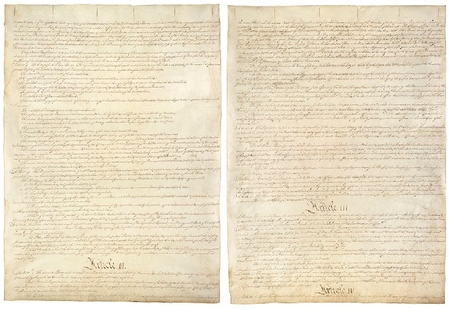
Audience
- Sentiment: Mixed/Divided
- Political Group: Republican
- Age Group: 30-60
- Gender: Male
Overview
- Trump signed an executive order to increase presidential control over independent federal agencies.
- Legal experts and advocates express concern over the potential erosion of agency independence and abuse of power.
- The order may lead to legal challenges and could influence future presidential actions regarding agency management.
Title: A Bold Move: Trump’s Executive Order and the Control of Independent Agencies
On February 19, 2025, history unfolded as President Donald Trump signed an executive order that would send ripples through the foundation of the U.S. government. This order was not just a piece of paper; it was a declaration of change, reshaping how independent federal agencies interact with the presidency. But what does this mean for everyday Americans, and why should you care? Let’s break it down.
Understanding Independent Federal Agencies
Before diving into the details of Trump’s executive order, let’s first understand what independent federal agencies are. These agencies, such as the Federal Election Commission (FEC) and the Federal Trade Commission (FTC), play a crucial role in managing specific government functions. They are designed to operate without direct control from the White House, making them somewhat like referees in a game. Their job is to ensure that the rules are followed fairly and impartially, without interference from the players—the politicians, in this case.
Think of the FEC, which oversees campaign finance laws, ensuring that elections are fair and funds are used properly. Or consider the FTC, which protects consumers by preventing unfair business practices. These agencies have historically aimed to remain independent so that they can effectively carry out their missions without political pressure.
The Significance of Trump’s Executive Order
So why would Trump want more control over these agencies? Well, the executive order he signed emphasizes a legal principle known as the “unitary executive theory.” This theory suggests that the president has ultimate authority over the executive branch of government, which includes these independent agencies.
By signing this order, Trump effectively places a new spotlight on these agencies, ensuring that they follow his administration’s priorities and perspectives. He has positioned Russell Vought, the director of the Office of Management and Budget (OMB), at the forefront of this process. Vought’s role will include enforcing management standards and closely monitoring the performance of these agencies.
At first glance, it might seem reasonable for a president to want to exert control over these agencies to align them with his goals. After all, the president is elected to implement his policies. However, this expansion of presidential power raises eyebrows and questions about the balance of power in government.
The Reaction to the Executive Order
The implications of this order are significant and complex. Many legal experts, political analysts, and civil rights advocates are expressing concerns over the potential erosion of agency independence. They argue that allowing the president to have more control could lead to abuses of power or political favoritism—where agencies might prioritize the president’s agenda over the public’s best interests.
Critics say this move is different from the practices of previous administrations, many of which upheld the principle that independent agencies should operate without direct presidential influence. For example, during both the Obama and Clinton presidencies, these agencies were largely left to manage their responsibilities on their own, preserving a sense of independence that critics argue is now at risk.
Moreover, this order could spark numerous legal battles as various stakeholders—like consumer advocacy groups, political opponents, and even members of Congress—challenge its legitimacy in the courts. There’s a strong likelihood that this executive order will become a hot topic in legal circles, possibly leading to a showdown over the president’s role in managing these agencies.
The Potential Aftermath
If Trump’s executive order is upheld, it could change how citizens engage with their government. For starters, individuals may see a shift in how agencies operate and respond to issues that matter to them. For instance, if the FTC starts easing regulations due to pressure from the White House, consumers might find themselves at a disadvantage, facing unfair practices from businesses.
Additionally, this could also have consequences for future administrations. If Trump’s order sets a precedent for presidential control over independent agencies, it could become easier for future presidents—regardless of their party—to follow suit. Imagine a future where each president restructures these agencies according to their personal agenda, rather than prioritizing the needs of the American people.
The Bigger Picture: Power Dynamics
What does this mean about the power dynamics in American politics? Traditionally, the U.S. government is built on a system of checks and balances, where different branches of government—you know, legislative, judicial, and executive—keep each other in check. The independence of agencies was meant to serve as an additional layer of protection against political maneuvering.
However, with this recent order, we see a potential shift that could disrupt this balance. If presidents can exert significant control over independent federal agencies, we may witness a future where political agendas overshadow the foundational goals these agencies were established to achieve.
A Call for Discussion
Now that we’ve unpacked the implications of Trump’s executive order, it’s essential to reflect on what this means for you and the society we live in. Some may support Trump’s initiative, believing that it will lead to greater accountability and effectiveness within these agencies. Others may fear that it represents a dangerous precedent that could undermine democracy.
What do you think? Do you believe that increased presidential control over independent agencies is a good idea, or are you concerned about the potential for abuse of power? Share your thoughts in the comments below. Your opinion matters, and this is an important conversation that could shape the future of our government!





